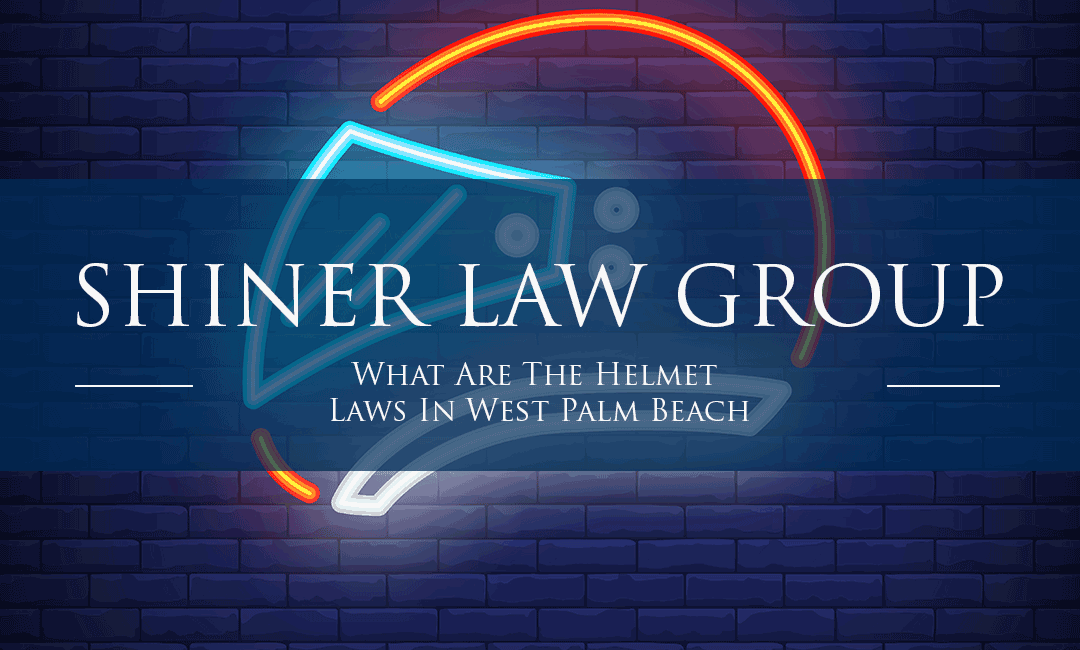The award-winning attorneys at the Shiner Law Group understand the unique and complex challenges motorcycle accident victims face, from Florida’s abstract insurance laws to the insurance companies’ deny and defend litigation methods.
Indeed, motorcycle drivers face significant personal injury risks due not only to the vehicle’s comparatively limited safety features but by other vehicles sharing the road. Understanding how to protect yourself, both physically and legally, can prevent substantial financial hardship in the event of an accident.
If you or your loved one has been involved in a motorcycle accident, contact our experienced attorneys at the Shiner Law Group to discuss the details of your case in a free consultation. We customize our legal services on a contingency fee basis, so you pay nothing unless we get you the recovery you deserve.

Florida’s Motorcycle Laws: How Helmets Can Prevent Injury and Refute Insurance Tactics
Motorcycle accident cases in Florida are pursued under the state’s negligence theory, which means that claimants must show the defendant is responsible for the sustained injuries. Unlike car accidents, victims in a motorcycle accident claim do not need to show a duty of care was owed or breached.
However, as Florida law does not require motorcycle drivers or their passengers to wear a helmet over the age of 21 (provided they retain a minimum insurance coverage policy of $10,000), insurance companies may argue that injured accident victims are comparatively negligible for their injuries: the absence of a helmet contributed to physical damage.
As personal injury protection benefits do not apply to motorcycle drivers or passengers, the use of helmets can reduce medical costs and eliminate an insurance company’s attempt to argue comparative negligence.
Florida Helmet Statistics
According to the National Highway Traffic Safety Administration (NHTSA), helmets are 37% effective in preventing accident fatalities and 67% effective in preventing brain injuries, which is significant considering that head injuries are the most common cause of motorcycle crash-related fatalities.
A study conducted by AAA revealed that Florida leads the nation in motorcycle accident fatalities as of 2017 at approximately 20%, despite motorcycles only accounting for 3% of registered vehicles in the state.
Steps to Take in a Motorcycle Accident in Florida
If you or your loved one has been involved in a motorcycle accident, the Shiner Law Group provides a basic list of steps to safeguard your legal and financial interests:
- Call emergency services: Motorcycle accident victims commonly suffer from broken bones, lacerations, disfigurement, loss of limbs, scarring, internal bleeding, and traumatic brain injuries (TBIs). Seeking immediate medical attention will help you appropriately address potentially fatal medical concerns and prevent insurance companies from downplaying the degree of injuries sustained.
- If conditions permit, collect evidence: You can maximize your claim’s financial recovery potential by preserving clothing, noting road and weather conditions, and taking photos of any damage or road marks.
- Avoid speaking with insurance agents. Written or oral statements can be later misconstrued as admitting fault. Consult with legal counsel.
Speak with a Shiner Law Group Motorcycle Accident Lawyer
Have you or someone you love been injured because of the negligent, reckless, or intentional conduct of another? Call us at (561) 777-7700 or contact us online for a free case review.